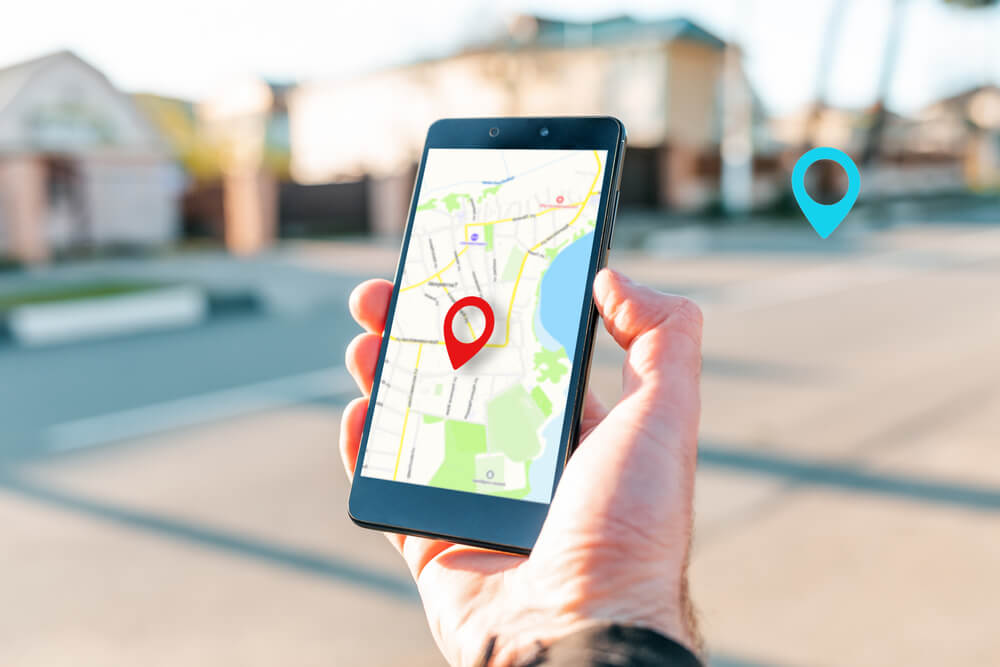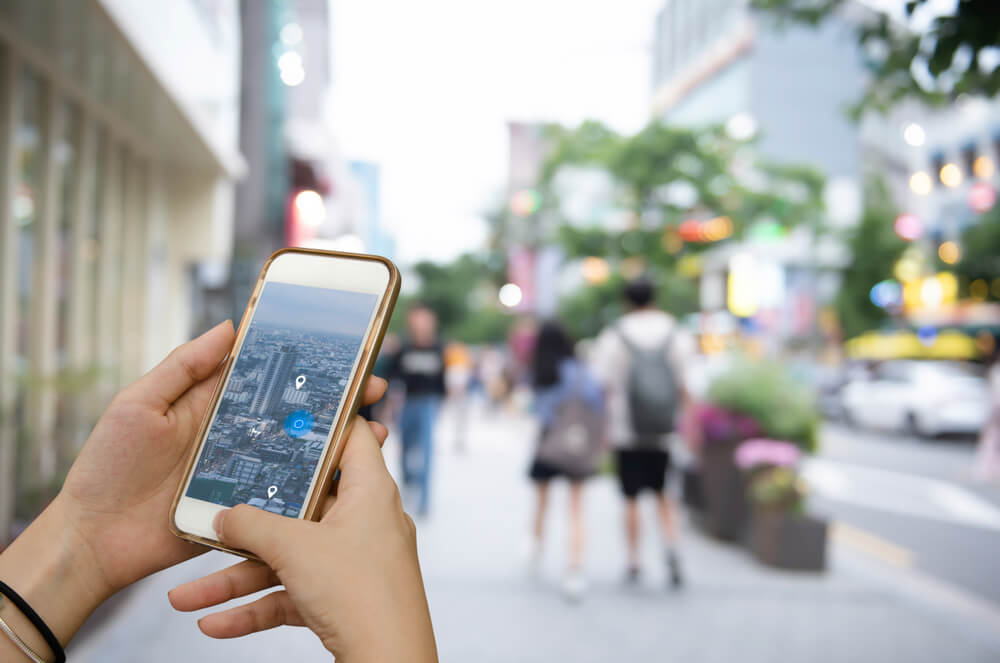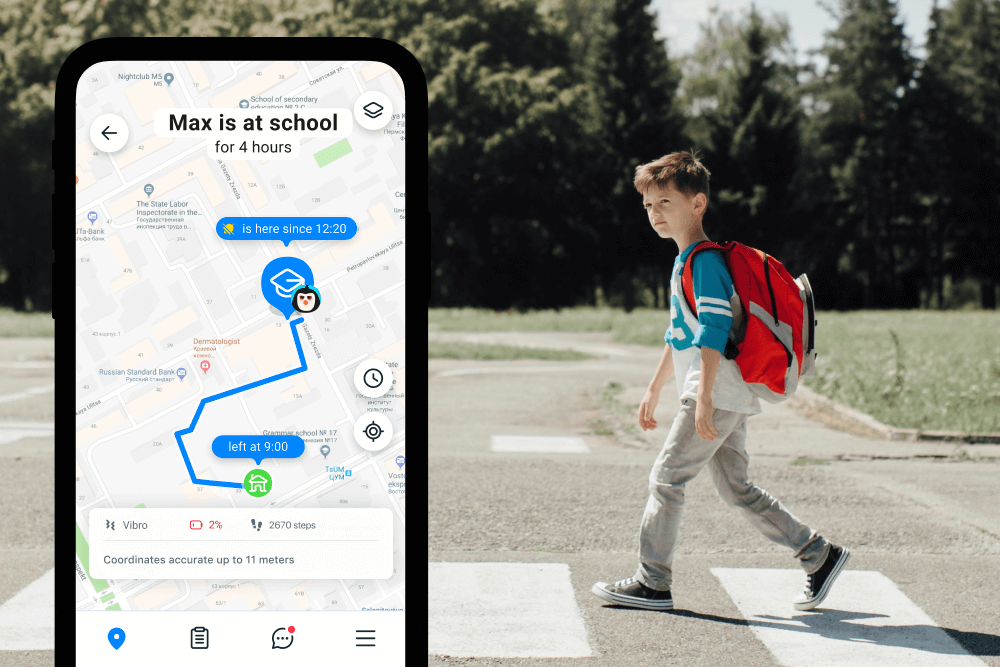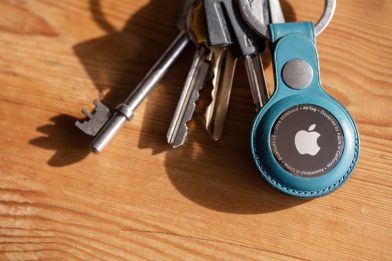Can My Location Be Tracked If Location Services Are Off? Security Guide

How to track someone when their location is off—this question might sound like something out of a spy movie, but the truth is more real (and more relevant) than ever. With smartphones constantly exchanging data, your whereabouts can sometimes be revealed even when you think you’ve gone fully offline.
In this guide, we’ll break down how such tracking works, what technologies make it possible, and—most importantly—how to protect yourself and your loved ones from unwanted surveillance.
Contents:
- How Does Location Tracking Work?
- Can Someone Track My Phone If My Location Is Off? How Can a Phone Be Tracked
- Can You Tell If Your Phone Is Being Tracked?
- How Tracking Technology Compromises Your Privacy?
- What Happens When You Turn Off Location Services?
- What Can You Do to Stop Others from Tracking Your Phone?
- Stay Safe with Findmykids
- FAQs
How Does Location Tracking Work?

leungchopan/Shutterstock.com
Whether it’s Google Maps, Waze, or another program, you’ve surely used navigation at least once to find a desired location. That could have been a friend’s building, a road out of town, or a coffee shop where you have a date scheduled.
Navigational apps on your cell phone use location services to provide information about your current location and directions. Multiple methods exist for location tracking, and they are identical on Android devices and iPhone operating systems.
Here’s an overview of the technologies used for location tracking:
- GPS. It’s an abbreviation for the Global Positioning System. A tracker integrated into your phone connects to a satellite network and identifies your precise location.
- Wi-Fi connection. Your device automatically detects available networks even if you don’t have an active connection. If you use public Wi-Fi, you’ll often have to agree to the terms of that hotspot, and they often include recording your location.
- Cell towers. Mobile data can also serve to discover your location. Your phone communicates with the cell towers. There are ways to use the duration it takes the signal to travel between the legitimate cell tower and your device to determine its location.
Can Someone Track My Phone If My Location Is Off? How Can a Phone Be Tracked
carballo/Shutterstock.com
A person turns off location services on their phone if they don’t want anyone to know about their whereabouts. In most cases, that’s a request for privacy that people should honor.
Observing a person’s location without their consent is bad. Not only do you ruin their trust, but tracking them could have legal consequences. You can only justify this move in special situations, such as parents using a GPS tracker on their minor child.
If we talk from a technical point of view, it’s possible to locate someone even if they deactivate location sharing. The person might be sharing location history with you, and you can check their last whereabouts before deactivating the service.
Other methods through which a phone can be tracked even when its location is turned off:
- Cellular Tower Triangulation: Even if the GPS is off, your phone constantly connects to the nearest cell towers for a stable signal. By analyzing the signal strength from multiple towers, the approximate location of the phone can be determined.
- Implication: This method provides a rough location rather than an exact location.
- Wi-Fi Connections: Wi-Fi networks that your phone connects to can serve as location markers. Databases of Wi-Fi networks and their locations are available, and if your phone connects to any of these networks, your location can be approximated.
- Implication: This method is more accurate in urban areas with dense Wi-Fi networks.
- Bluetooth Tracking: Bluetooth signals can be used for tracking. If your phone has Bluetooth enabled, its signal strength and proximity to other Bluetooth devices can be used to estimate your location.
- Implication: This method is effective in close quarters and is often used in indoor spaces.
- IMEI Tracking: Every phone has a unique International Mobile Equipment Identity (IMEI) number. Mobile carriers and law enforcement can use this number to track the device, irrespective of whether the location is on or off.
- Implication: IMEI tracking is typically used in legal and security contexts.
- App and Social Media Tracking: Some apps and social media platforms collect location data even when the phone’s location services are turned off. This information is often used for targeted advertising and analytics.
- Implication: Review app permissions and privacy settings to control such tracking.
- IP Address Tracking: When your phone connects to the internet, it is assigned an IP address. This address can be geographically traced to determine your location.
- Implication: This method is less precise but can give a general idea of your location.
- Network Pinging: Phones occasionally ping the network to maintain a connection. By analyzing these pings, the network provider can estimate the phone’s location.
- Implication: This method is used by network providers for maintenance and troubleshooting.
Finally, if there’s a monitoring app or spyware installed on your device, someone could see your location by using it.
Now, to highlight the different ways location can be tracked, let’s take a look at the table below, which summarizes the various tracking methods and their implications.
| Technology | Can the location be found? | How accurate is the location sharing? | How to disable? | Who can access? |
| Wi-Fi | Yes (through nearby networks) | ~ 10–50 meters | Turn off Wi-Fi access or disable “Wi-Fi scanning” | App developers, attackers, providers, government agencies |
| Bluetooth | Yes (via beacons or other devices) | ~ 1–10 meters | Turn off Bluetooth or disable “Bluetooth scanning” | App developers, attackers, government agencies |
| Cellular Data | Yes (via triangulation) | ~ 100–500 meters (urban), ~ 1–5 km (rural) | Airplane mode or remove SIM card | Providers, government agencies |
| IMEI | Indirectly (through network registration) | Varies (linked with tower location) | Only by physically turning off the device or using a privacy device | Providers, government agencies |
| SIM | Yes (linked to your phone number and network) | Same as cellular data (tower-based) | Remove the SIM card | Providers, government agencies |
| Motion Sensors | Yes (infer movement patterns) | Indirect (used to approximate movements) | Restrict app permissions (rarely fully disabled) | App developers, attackers (via apps) |
| Apps | Yes (if permissions granted or secretly collected) | Highly accurate (depending on method used) | Deny location permissions, restrict background data, uninstall suspicious apps | App developers, attackers, government agencies (via data requests) |
⠀
It’s essential for users to be aware of these tracking methods and to make informed decisions regarding their privacy and location settings on their mobile devices. Regularly review and update your device settings to control the extent of your location sharing.
Related: Can Someone Track Your Location from a Text Message? How to Detect and Prevent It.
Can You Tell If Your Phone Is Being Tracked?

Oleksandra Kharkova/Shutterstock.com
Now that we know how to track someone when their location is off, let’s see if there are ways to protect yourself from this threat.
The first thing to do is to figure out if anyone’s tracking you. Here are some signs that point to something suspicious happening:
- The battery doesn’t last as long as before. Time does affect battery health and battery capacity, but if you notice a sudden drop, that could be an indicator of spyware on your phone. Also, you can check the maximum battery capacity and battery health in your phone settings. If it’s above 90% and it still drains quickly, unwanted apps might be running in the background.
- You found an application you don’t recognize. Most phones come with pre-set apps, but you should know each one’s purpose. If you notice software that hasn’t been there before or you don’t know its purpose, it’s best to delete it.
- Overheating and randomly lighting up. A phone might overheat if you leave it in the sun for too long or if you use demanding apps. However, if it’s hot the moment you take it in your hands, it likely runs some unwanted apps even when you don’t use it. Another indicator of this is when the screen lights up suddenly or other people complain they got texts with weird links from you.
So, how do you know if someone is tracking your location? The key is to stay alert for unusual phone behavior—rapid battery drain, apps you don’t recognize, or your device lighting up for no reason. These are subtle clues that could indicate tracking or spyware running in the background without your knowledge.
How Tracking Technology Compromises Your Privacy?
Most people are unaware of how much personal data is being collected by their phones, apps, and even service providers. Even when you think you’ve turned off location sharing and tracking, some methods can still track you in the background.
To help you better understand how these various technologies impact your privacy, here’s an overview of the tracking methods and who can access them:
| Category | Examples | Legality | Visibility to the User | Common Use Case | Risk of Misuse |
| White (legal) | Find My (Apple), Google Family Link, Findmykids | ✅ Legal (with consent or for parental control) | 👁️ Visible and transparent | Safety, child monitoring, device recovery | 🔓 Low |
| Grey (borderline) | AirTag without notification, employee browser tracking, stalkerware apps | ⚠️ Depends on the country/context | 🚨 May be hidden | Employee monitoring, hidden tracking in personal life | ⚠️ Medium–High |
| Black (illegal) | IMEI tracking, exploits, VPN data leaks | ❌ Illegal | ❌ Completely hidden | Espionage, stalking, data theft | 🔥 Very high |
What Happens When You Turn Off Location Services?
Turning off location services limits apps and system features from accessing GPS data, which is often used for real-time tracking. However, it doesn’t disable other methods like Wi-Fi, Bluetooth, or cell tower connections. That means your device may still be located approximately—even with GPS off. To fully stop location sharing, you’ll need to turn off or restrict multiple services manually.
What Can You Do to Stop Others from Tracking Your Phone?

TippaPatt/Shutterstock.com
The first thing to confirm is that you turned off location services. While this doesn’t secure perfect protection, it’s the most necessary step. Deactivated location services will restrict authorized apps or services from acquiring data that could serve to discover your whereabouts.
Here are some other top tips to prevent your phone from being tracked:
- Turn the device off completely. It’s the simplest and safest method, but the problem is that you can’t go forever without your phone. You can get those old mobile phones that don’t have integrated smart functions. But if you want to use a modern device like an iPhone, the moment you turn it on, it will be possible to track your location again if the required permissions and conditions are met.
- Deactivate GPS, Bluetooth, and cellular data. All these technologies may leak information that reveals the phone’s whereabouts. It’s best to deactivate them, at least when you aren’t using the technologies actively.
- Turn on the airplane mode. When you turn on airplane mode, it disconnects your built-in location services like Wi-Fi, cellular data, and Bluetooth. So apps like Findmykids and Find My cannot see your current location. However, airplane mode does not turn off features like GPS.
- Check app permissions. Some apps might have required access to your location, although there’s no valid reason for that. While navigational software needs your location, why should that game provider have access to it? Check app permissions and deactivate location access wherever possible.
- Avoid public Wi-Fi or use a VPN. Public hotspots are a big threat to your privacy, so it’s best to avoid them. If you need to use them, activate a VPN. It’s a virtual private network that encrypts your data and doesn’t reveal your physical location or IP address.
- Beware of the files you download. A single click and untrustworthy app installation could lead to installed malware. Apart from knowing details about your location, malware can also try to spread by sending infectious links to your other contacts. Before you download or transfer any file from your device, make sure it comes from a secure source.
Stay Safe with Findmykids
Each person has the right to privacy, and that includes protecting their whereabouts from others. But if you are a parent, it’s normal that you worry about your kid’s safety. If your children are minors and you are their guardians, you can activate a phone tracker. Furthermore, these trackers can provide the peace of mind that each parent needs.
Findmykids is the best children’s GPS tracker you can find in the market. It’s easy to use and loaded with useful features. The primary function is to use GPS technology to track your kid’s real-time location. You’ll always know if they are in school or with a friend. Findmykids provides maps with location history, which can be great if kids lose their phones. It allows knowing which locations to visit to look for it.
The software can send alerts when your kid reaches a specific destination. If you are unsure why they are at that location, it’s possible to hear live audio and understand what’s happening around your kid. That’s great if the child has a problem with bullies or if they don’t answer your calls.
Not everyone can call your kid if you activate Findmykids on their phone. Instead, you need to approve every number as a trusted contact before it can be used for a call. You can send a loud signal if your child isn’t picking up, and this feature works even in silent modes. If your kid thinks they are in trouble, they can send a quick SOS signal to let you know they are in a dangerous situation.
Findmykids has two plans, with the first one being free forever. You can monitor the current location and check the whereabouts history for a day. Three loud signals and movement notifications are also included. The premium Findmykids plan removes restrictions for loud signals, movement alerts, and route history. It also allows receiving an SOS signal and monitoring games and app usage on the targeted phone.
Try the Findmykds App for Free Right Now!
FAQs

pikselstock/Shutterstock.com
Is turning off location services enough to protect you from being tracked?
While it helps significantly, some advanced methods could still serve to get your location details. That’s why it’s best to turn off your phone completely. It prevents the device from sending any data.
Should you track a person’s location if they turn off their location services?
If you don’t have consent for location tracking, that’s not something that you should do. On the other hand, parents with children who are minors don’t need consent to use GPS to track their kids’ whereabouts.
Do others get informed if I turn off my location services?
No, they won’t receive a direct notification that you deactivated this option. However, if they look for your whereabouts, they will discover that you disabled the feature.
How can I discover if someone is tracking my location?
Weird apps installed, sudden loss of battery life, and device overheating are some signs that indicate malware on your device. Deactivate unnecessary apps or reset the phone to factory settings.
Does my phone record my location history?
Yes, in some cases, especially if you allow Google Maps permission to track your location, there will be a record of your location history in your phone. You can request to turn this feature off in Google Maps.
The picture on the front page: STEKLO/Shutterstock.com
Проверьте электронный ящик



















